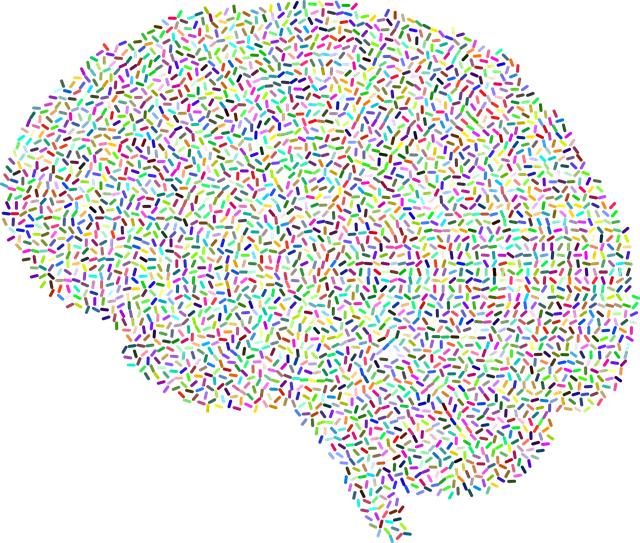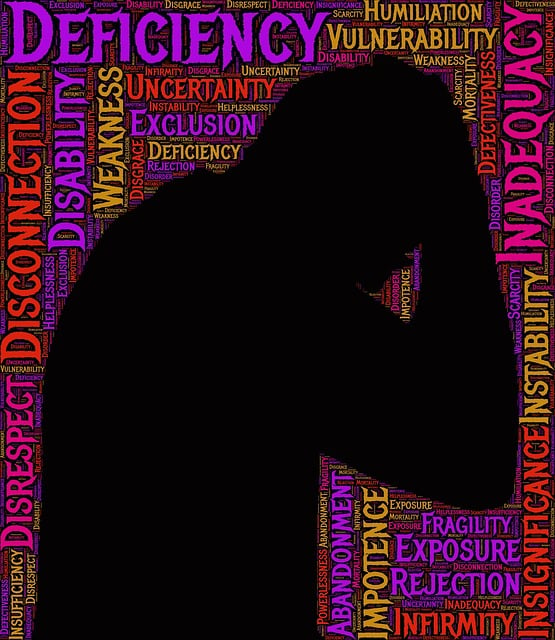Lafayette Functional Neurological Disorder Therapy (LFNDT) offers a personalized, innovative approach to treating neurological conditions, focusing on communication strategies, self-care practices and Resilient Focused Mindfulness (RFM) principles. This therapy enhances patients' resilience, mental well-being, adaptability, and positive mindset through structured, client-centered exercises tailored to individual needs. By integrating RFM models, LFNDT improves therapeutic outcomes, promotes early intervention, and enables individuals to effectively manage symptoms in a supportive environment. Success is measured through observations, standardized assessments, client feedback, and case studies, demonstrating LFNDT's efficacy for risk management in mental health settings.
“Discover the transformative power of Lafayette Functional Neurological Disorder Therapy (LFNDT) and its unique approach to enhancing resilience. This article explores the key principles of RFM—Resilience, Flexibility, and Motivation—and their pivotal role in building mental fortitude for individuals with LFNDT. We provide a comprehensive guide on implementing RFM exercises, offering step-by-step instructions for therapists. Learn how to personalize protocols, measure success, and track progress, ultimately optimizing the efficacy of this innovative therapy.”
- Understanding Lafayette Functional Neurological Disorder Therapy (LFNDT) and its Impact
- The Role of RFM (Resilience, Flexibility, and Motivation) in Building Mental Fortitude
- Implementing RFM Exercises: A Step-by-Step Guide for Therapists
- Personalizing RFM Protocols for Individuals with LFNDT
- Measuring Success and Tracking Progress: Evaluating the Efficacy of RFM in LFNDT
Understanding Lafayette Functional Neurological Disorder Therapy (LFNDT) and its Impact

The Lafayette Functional Neurological Disorder Therapy (LFNDT) is a unique and innovative approach to addressing neurological conditions, offering profound benefits for individuals navigating functional impairments. This therapy focuses on enhancing communication strategies and self-care practices tailored to each patient’s specific needs. By integrating various techniques, LFNDT aims to improve overall resilience and quality of life. The impact is significant, as it empowers individuals to manage their symptoms effectively, fostering a sense of autonomy and improved mental well-being.
Implementing LFNDT requires healthcare provider cultural competency training to ensure inclusive care. This training enables professionals to understand the therapy’s nuances and adapt it to diverse patient backgrounds, making it accessible and impactful for all. The integration of communication strategies within LFNDT further emphasizes the importance of clear, empathetic dialogue between patients and caregivers, enhancing the overall therapeutic experience.
The Role of RFM (Resilience, Flexibility, and Motivation) in Building Mental Fortitude

Resilience, Flexibility, and Motivation (RFM) form a powerful triad that plays a pivotal role in building mental fortitude. This concept is particularly relevant when addressing conditions like Lafayette Functional Neurological Disorder Therapy, where patients often face significant challenges to their daily functioning. By integrating RFM principles into therapy, practitioners can empower individuals to navigate adversity with greater ease.
Resilience, for instance, equips individuals with the ability to bounce back from setbacks and stress. Flexibility allows for adaptation to changing circumstances, ensuring that obstacles don’t hinder progress but are seen as opportunities for growth. Motivation, on the other hand, drives individuals towards their goals, fostering a positive mindset and encouraging the practice of self-awareness exercises. These interconnected elements collectively contribute to enhancing overall mental toughness, enabling individuals to approach life’s challenges with renewed confidence and a sense of purpose.
Implementing RFM Exercises: A Step-by-Step Guide for Therapists

Implementing RFM (Resilience, Flexibility, and Mobilization) exercises involves a structured approach tailored for therapists aiming to support clients with functional neurological disorders, such as those seen in Lafayette Functional Neurological Disorder Therapy settings. Here’s a step-by-step guide:
1. Assess Individual Needs: Begin by evaluating each client’s unique challenges and goals. This understanding forms the foundation for crafting personalized RFM routines that address specific areas of difficulty, aligning with individual therapy objectives.
2. Educate Clients on RFM Principles: Explain the benefits and mechanisms behind RFM exercises. Educating clients fosters engagement and empowers them to actively participate in their healing process, enhancing mental wellness. This step is crucial for building trust and ensuring consistent practice outside therapy sessions.
3. Design Personalized Exercise Programs: Based on assessments, create tailored exercise plans incorporating resilience-building strategies like progressive overload, flexibility techniques (e.g., yoga), and mobilization exercises to improve range of motion. Consider integrating elements from Mental Wellness Coaching Programs Development and Mental Wellness Podcast Series Production to keep routines engaging.
4. Demonstrate and Provide Feedback: During sessions, demonstrate exercises clearly and offer real-time feedback to ensure clients perform movements accurately. This interactive approach not only enhances learning but also strengthens the therapeutic bond between therapist and client.
5. Track Progress and Adjust: Regularly monitor clients’ progress by assessing improvements in physical mobility, pain levels, and overall mental wellness. Adjust exercise programs accordingly, incorporating new challenges as clients build resilience to prevent plateaus and promote continuous development.
6. Integrate Cultural Competency: Healthcare Provider Cultural Competency Training can be leveraged to create inclusive RFM routines that respect diverse cultural backgrounds, ensuring therapeutic approaches resonate with all clients.
Personalizing RFM Protocols for Individuals with LFNDT

Personalizing RFM (Resilience, Flexibility, and Motivation) protocols for individuals with Lafayette Functional Neurological Disorder Therapy (LFNDT) requires a nuanced approach. Each person’s experience with LFNDT is unique, and tailoring exercises to individual needs is essential for effective resilience building. Traditional RFM strategies may need adjustments to accommodate the specific challenges presented by LFNDT, such as cognitive processing difficulties or sensory sensitivities.
By incorporating elements of conflict resolution techniques and social skills training within RFM protocols, therapists can foster a more inclusive and supportive environment. Public awareness campaigns development can also play a significant role in normalizing LFNDT and encouraging early intervention, ultimately enhancing the effectiveness of resilience-building exercises for affected individuals.
Measuring Success and Tracking Progress: Evaluating the Efficacy of RFM in LFNDT

Measuring success and tracking progress are essential aspects of implementing Lafayette Functional Neurological Disorder (LFNDT) Therapy, especially when utilizing Resilient Focused Mindfulness (RFM). In LFNDT therapy sessions, therapists can evaluate the efficacy of RFM through various methods. One way is by observing clients’ ability to stay present and manage distractions during mindfulness exercises, which can be quantified using standardized assessments. These tools help identify improvements in attention span, emotional regulation, and overall mental clarity—key indicators of successful RFM integration.
Additionally, tracking progress involves regular client feedback and self-assessment. Mentoring sessions or follow-up interviews can provide valuable insights into clients’ experiences with RFM techniques. This qualitative data complements quantitative measures, offering a holistic understanding of how LFNDT therapy, combined with RFM exercises, enhances clients’ confidence boosting mechanisms and facilitates their risk management planning for mental health professionals. The Mental Wellness Podcast Series Production can also be utilized to gather client testimonials and share successful case studies, further emphasizing the benefits of this therapeutic approach.
Lafayette Functional Neurological Disorder Therapy (LFNDT) offers a unique approach to enhancing mental resilience, and incorporating RFM (Resilience, Flexibility, and Motivation) exercises is a powerful tool within this framework. By following the step-by-step guide provided, therapists can effectively personalize protocols for individuals with LFNDT, fostering their ability to navigate challenges. Measuring success through regular evaluations ensures the program’s efficacy, allowing therapists to track progress and adapt strategies as needed. This holistic approach to mental health empowers folks to build fortitude and embrace life’s complexities with renewed confidence.














